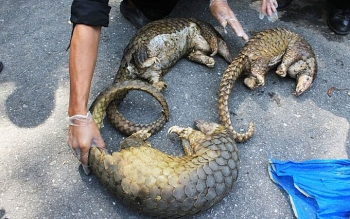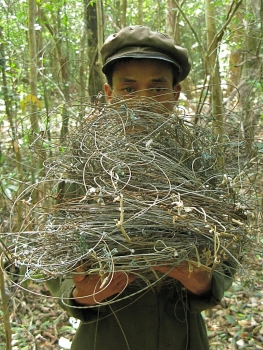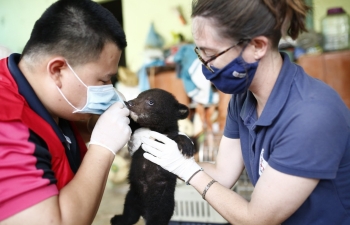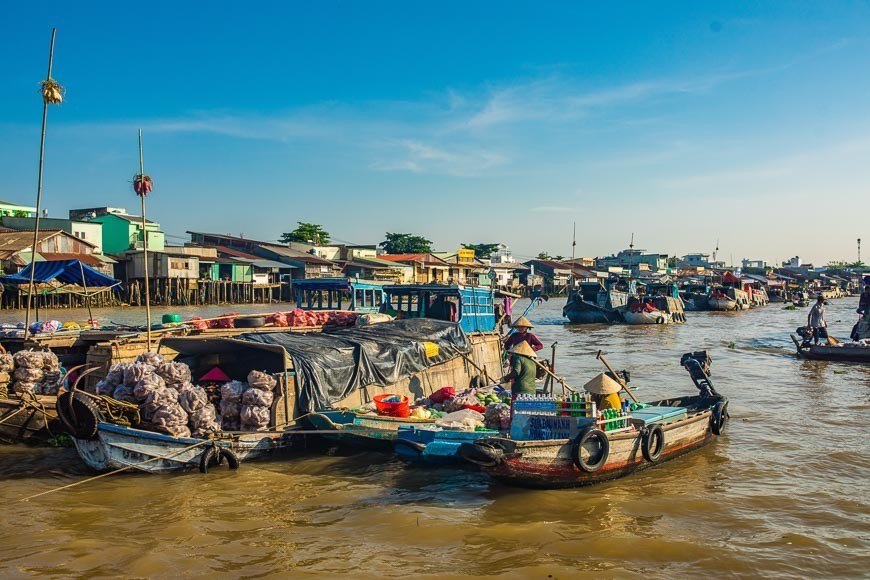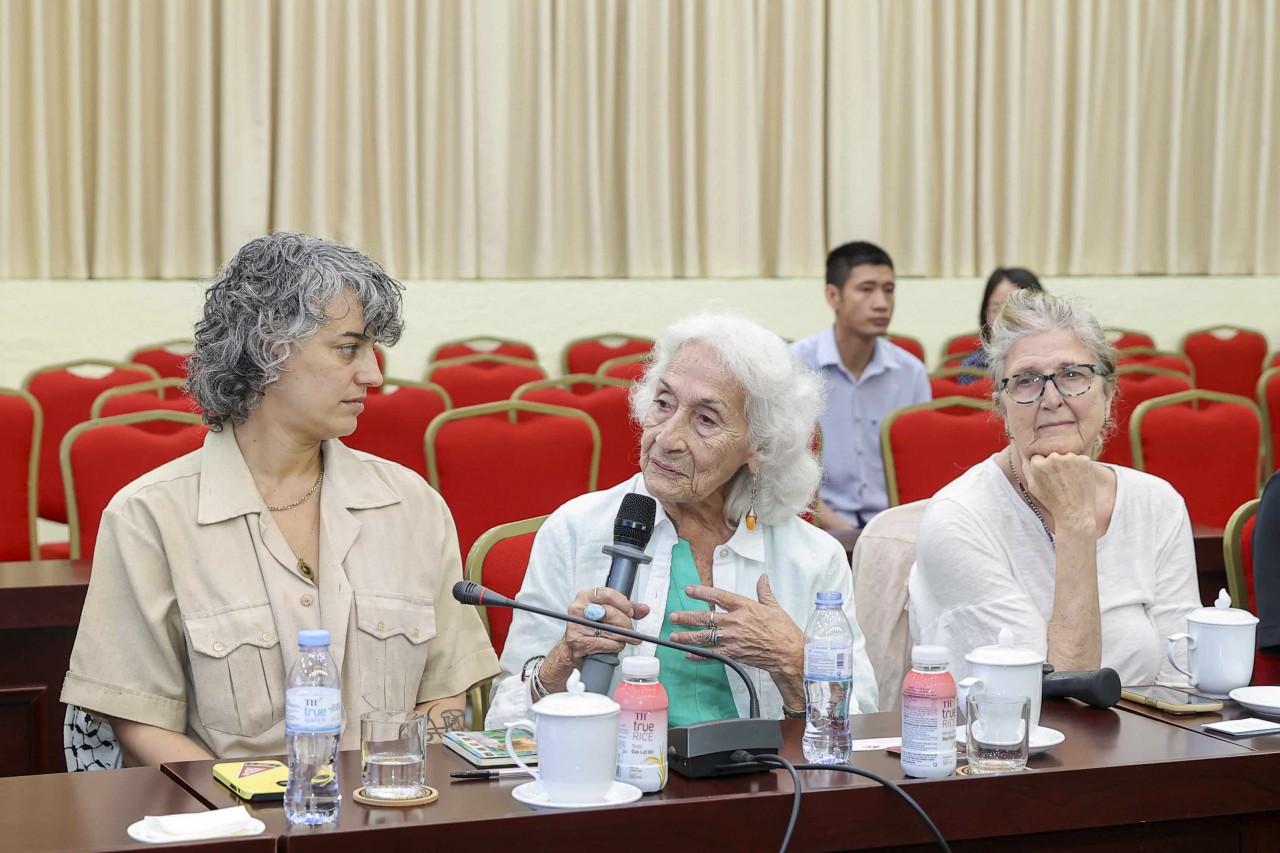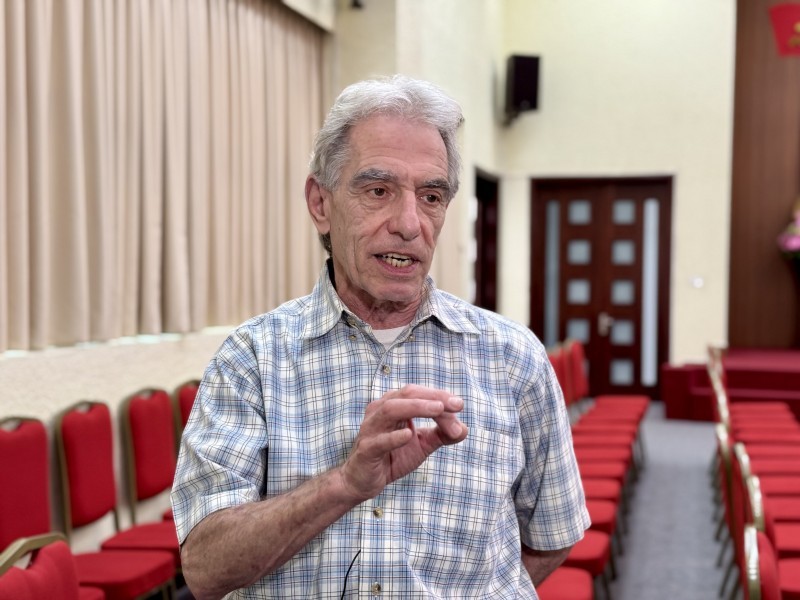Vietnam's new ban on illegal wildlife trade and consumption welcomed by international community
| Vietnam bans wildlife trade to reduce risk of pandemics | |
| Snaring wildlife animals may spawn disease transmission, warns WWF | |
| Bear cub rescued from illegal wildlife trade in Vietnam |
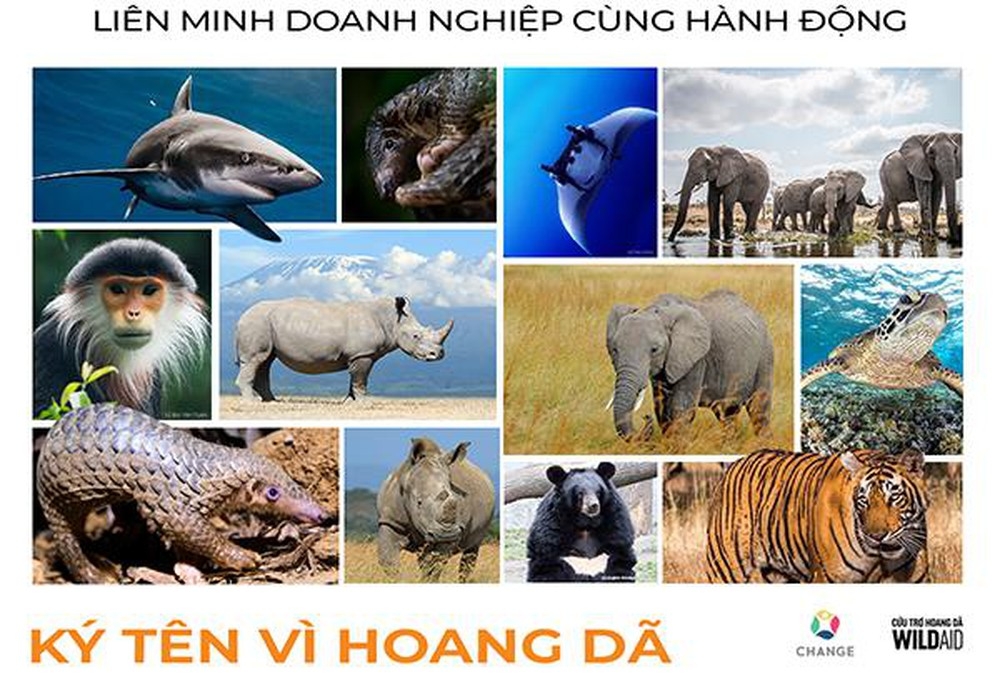 |
| A poster calling publicity to join hand for the advocacy campaign to protect wild animals |
Right after the approval of the Prime Minister of Viet Nam Nguyen Xuan Phuc for the new Directive No. 29 on tightening control against illegal wildlife trade and consumption issued on July 23, 2020, it has received a number of positive applause from a wide range of stakeholders, both inside and outside of Vietnam.
In response to the Vietnamese Government decision, WWF - the global leading organization in wildlife conservation and endangered species, says that it welcomes the new Directive No. 29 issued by the Prime Minister of Viet Nam "to address crucial issues on illegal wildlife trade as part of the country’s efforts to prevent future pandemics, halt further loss of Viet Nam’s declining wildlife populations and improve the country’s reputation in relation to wildlife trade".
"As countries around the world grapple with COVID-19 and the risk of other zoonotic infectious diseases, we wholly embrace the timely and decisive action by Prime Minister Nguyen Xuan Phuc to deliver this Directive, improving regulations on the trade and consumption of high-risk wildlife and showing leadership in managing stockpiles of seized CITES listed species including rhino horn and elephant ivory", said Dr. Van Ngoc Thinh, Country Director, WWF-Viet Nam.
"WWF stands ready to support the government to implement the Directive as required, technically and financially”, added Thinh.
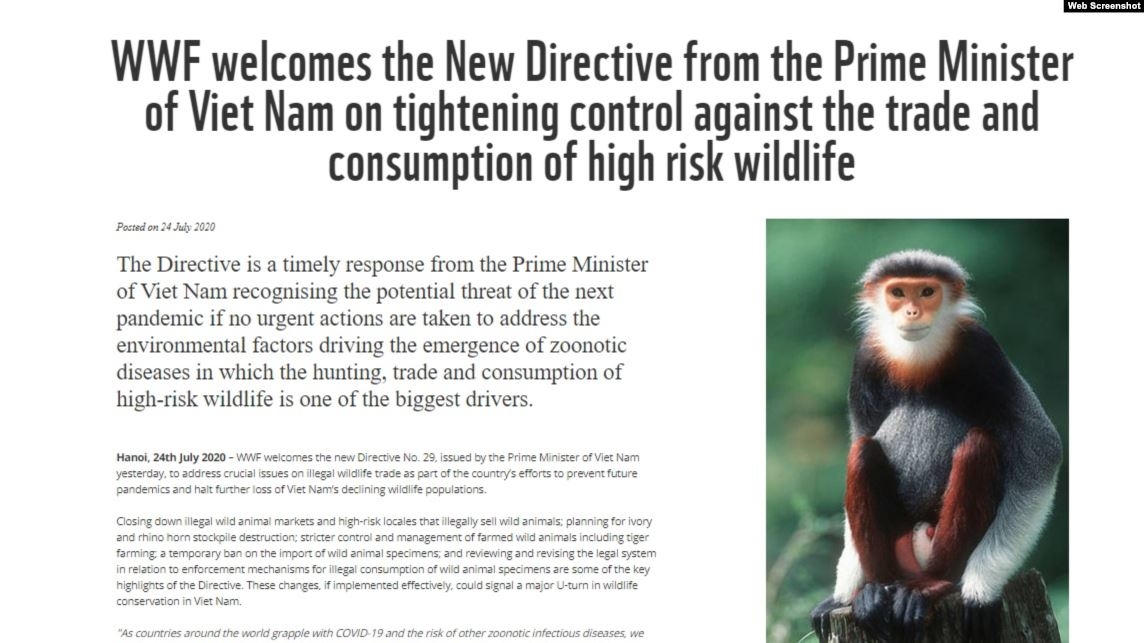 |
| WWF - the global leading organization in wildlife conservation and endangered species, says that it welcomes the new Directive No. 29 issued by the Prime Minister of Viet Nam |
According to WWF, with the complicated context of the COVID-19 pandemic, the Directive is a timely response from the Vietnamese government in recognizing the potential threat of the next pandemic if no urgent actions are taken to address the environmental factors driving the emergence of zoonotic diseases in which the hunting, trade and consumption of high-risk wildlife is one of the biggest drivers.
In its recent statement, WWF acknowledged that the decisive move of Vietnam signifies a step toward reducing threats to public health and the national economy, and helps secure a future for countless species threatened by illegal trade, consumption and commoditization in Viet Nam and across the region.
“We must urgently recognize the links between the destruction of nature and human health, or we will soon see the next pandemic,” said Marco Lambertini, Director General, WWF International.
“WWF commends the series of measures taken by governments to eliminate high-risk wildlife trade and consumption. There is an urgent need for global concerted action, and the elimination of high-risk wildlife trade is an important first step towards reducing the risk of future zoonotic epidemics, protecting species and safeguarding people’s lives and well-being", urged Marco Lambertini, emphasizing that unsustainable exploitation of nature has become an enormous risk to the humankind.
The UK based Telegraph newspaper in its new article reflected that "the decision is a major victory for conservation groups" in advocating authorities to have a stricter response to the illegal wildlife trade, a consequence which has been blamed for causing the coronavirus pandemic that first emerged in a wet market in Wuhan, China recently.
The Guardian mentioned the happiness of campaigners from NGOs for this advocacy success; however, noting that some people have still skeptical about the enforcement and implementation of this ban in the practice.
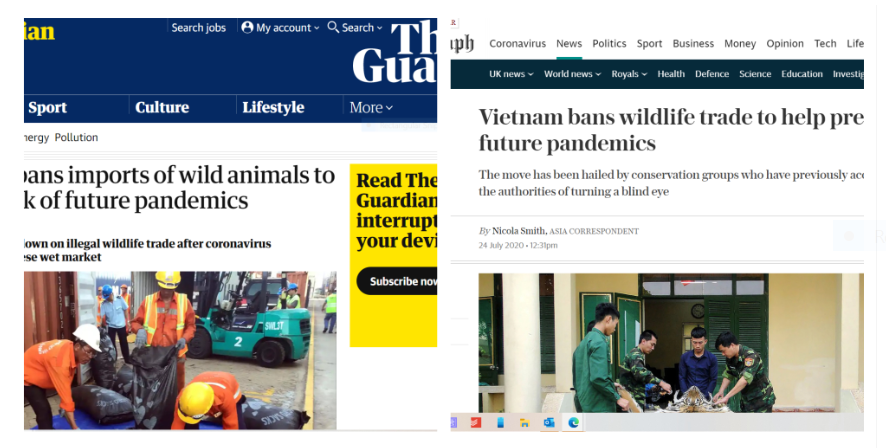 |
| International newspapers applauded for the new ban on wildlife trade and consumption in Vietnam |
According to Radio Television Hong Kong (RTHK), it is a major victory for conservation groups who have in the past were worried about the limited actions of authorities regarding the illegal trade in endangered species inside and across its borders.
"Vietnam is to be congratulated for recognizing that Covid-19 and other pandemics are linked to the wildlife trade," said Steven Glaster, Chairman of Anti-trafficking group Freeland.
Especially, Leonardo DiCaprio, an American actor who is well-known for his several movies, including "Titanic", posted a message on his Instagram on July 24, saying that the ban from Vietnam is "breaking news".
"This is huge for both the protection of wildlife and ourselves. We must end the trade", emphasized Leonardo.
His message has attracted over 224,000 likes only within 07 hours from the time of posting on his Instagram. It is noted that not only working in the movie industry, the Academy Award-winning actor is also a well-known philanthropist and active environmentalist. In 1998, Leonardo DiCaprio established his foundation named the Leonardo DiCaprio Foundation (LDF) with the mission of protecting the world’s last wild places.
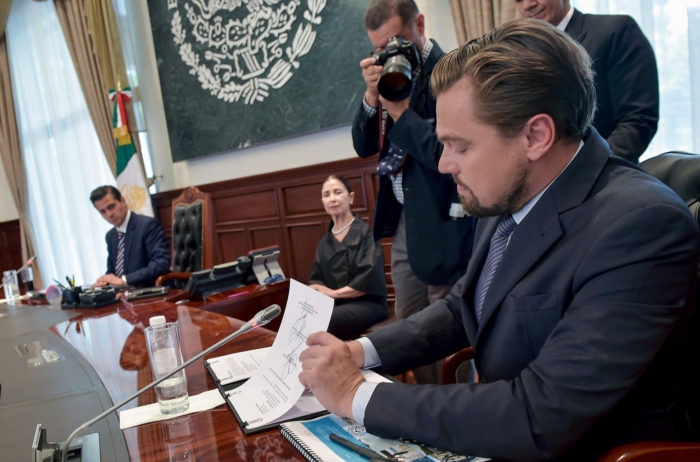 |
| Actor Leonardo DiCaprio is an active environmental and wildlife activist. Photo: mindfood |
“Vietnam’s government shows strong leadership with this comprehensive action and focus on stopping imports, closing all wildlife markets and prohibiting any consumption, buying, and advertising", said John Baker, Chief Program Officer at WildAid, citing Leonardo in his Instagram.
"This provides a great example to other members of the Association of Southeast Asian Nations (ASEAN) on how to address the threat of the wildlife trade to economic security and public health”, Baker said.
Talking about the next steps, the "Titanic" movie star revealed that he will work with CHANGE, WildAid, the Pangolin Crisis Fund, and some other partner organizations in order to carry out a series of activities that will promote the Prime Minister’s instructions, raise awareness, and ultimately change wildlife consumption behavior, especially around wildlife sold in markets and restaurants.
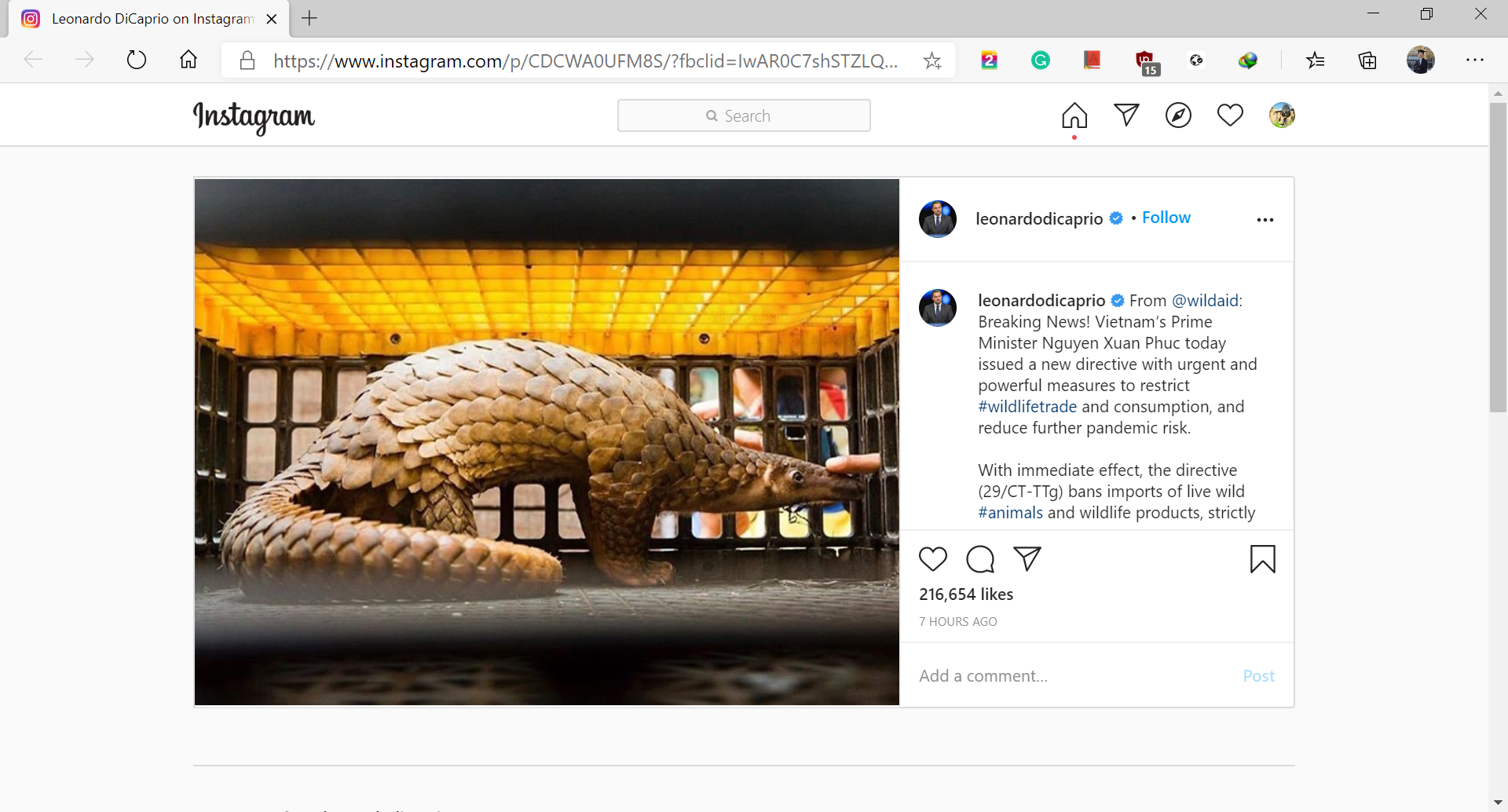 |
| Leonardo DiCaprio took to Instagram to welcome the ban on the illegal wildlife trade from Vietnam |
According to Pan Nature, wild animal meat, while not widely served in Vietnam’s major cities, is relatively easy to find throughout the country and remains common in more rural areas. It is difficult to assess the size of the wildlife market in Vietnam, illegal or legal. The illegal trade involves high-value species like tigers, rhinos, and elephants, while most smaller species are unregulated. The supply is a mix of wild-caught animals, such as pangolins and leopard cats, and animals raised on farms, such as civets and moon bears.
Hence, the strong move of Vietnam on tightening control against illegal wildlife trade and consumption is widely welcomed with the expectation of strong law enforcement and practical actions towards violations of wildlife trade in real life.
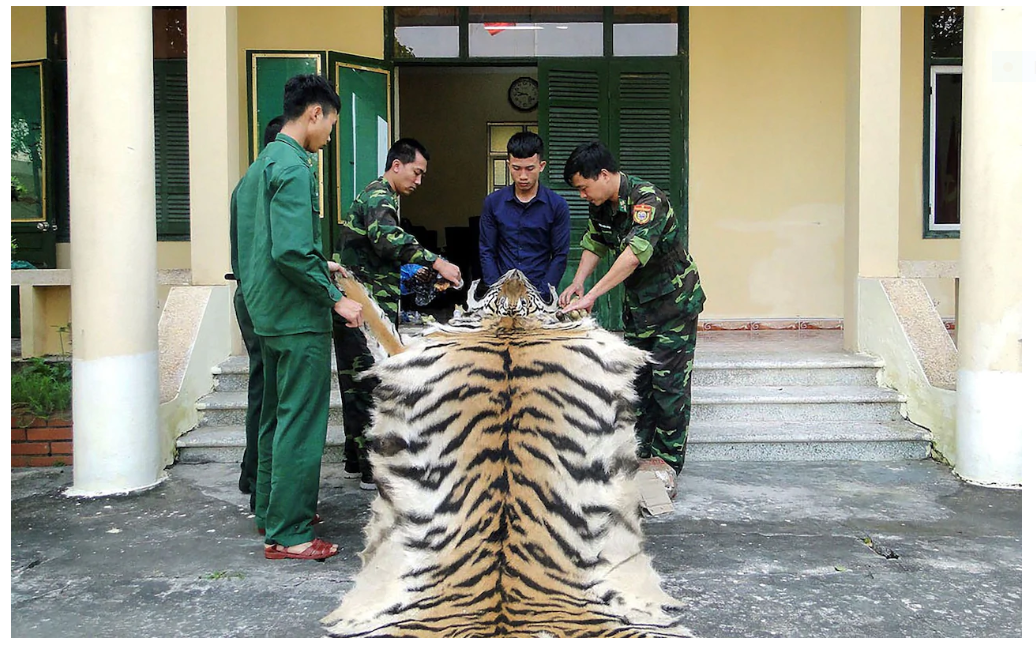 |
| Tiger parts are among the wildlife products that will be banned under the new directive. Photo: AFP |
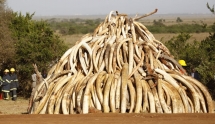 | Mekong region: Short film competition on illegal wildlife trade launched (VNF) The UK Government and the Luang Prabang Film Festival, in cooperation with the World Wildlife Fund (WWF) and the Wildlife Conservation Society (WCS), are ... |
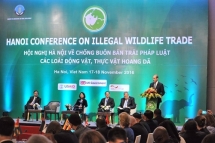 | Vietnam commits to strengthen law enforcement to curb illegal wildlife trade The Government of Vietnam recently hosted the Hanoi Conference on Illegal Wildlife Trade, the third in a series of global conference that started with the ... |
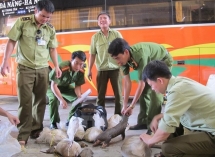 | Vietnam to beef up fight against illegal wildlife trade The Prime Minister steps in, urging agencies concerned at all levels to combat the poaching and trafficking of wild animals. |
Recommended
 Viet's Home
Viet's Home
Hue City to Raise Awareness on Mine Accident Prevention
 Focus
Focus
Vietnam Leaves Imprints on the World Peacekeeping Map
 Viet's Home
Viet's Home
“Global Vietnamese Singing 2025” - Connecting Hearts Longing for Homeland
 Viet's Home
Viet's Home
Vietnam’s People's Public Security Force Actively Contributes to UN Peacekeeping Operations
Popular article
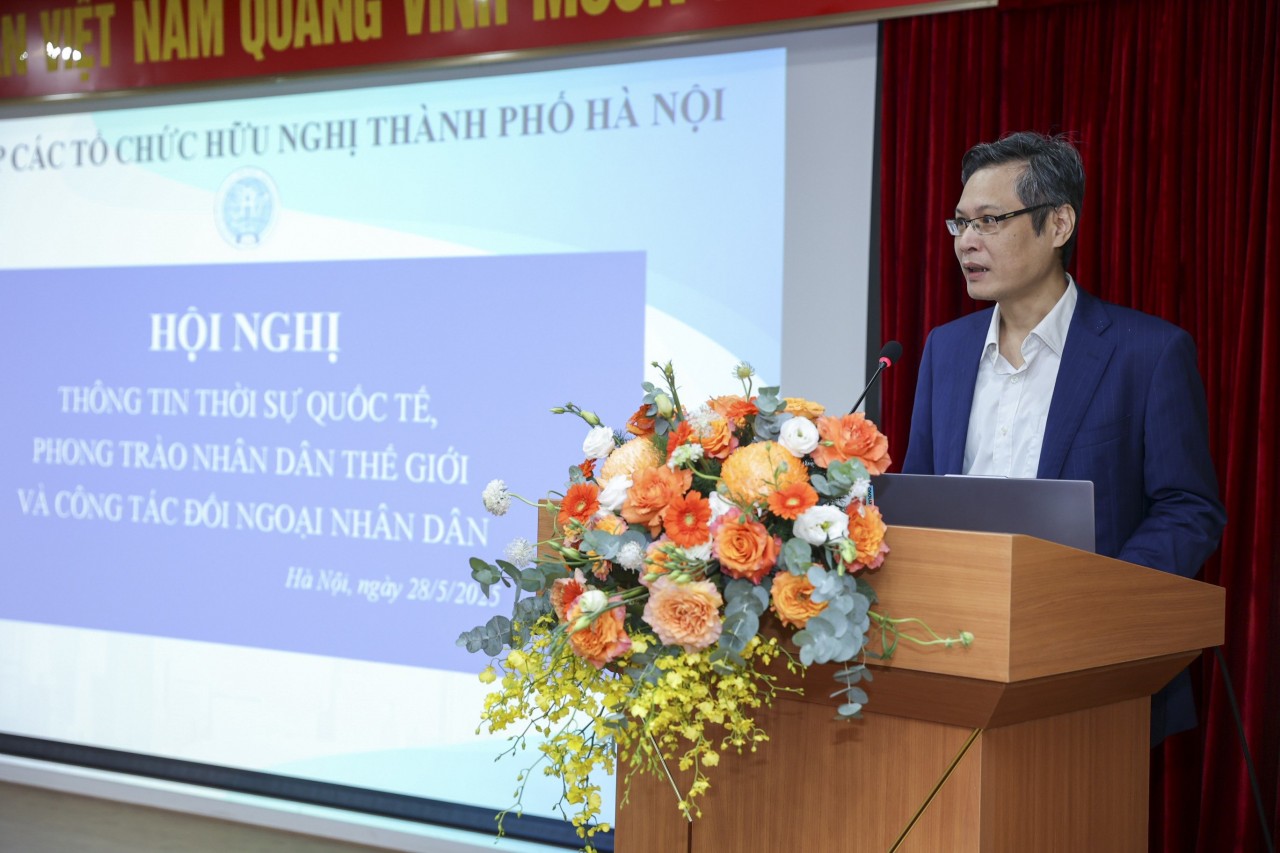 Viet's Home
Viet's Home
HAUFO Enhances Competence of People-to-People Diplomacy Personnel
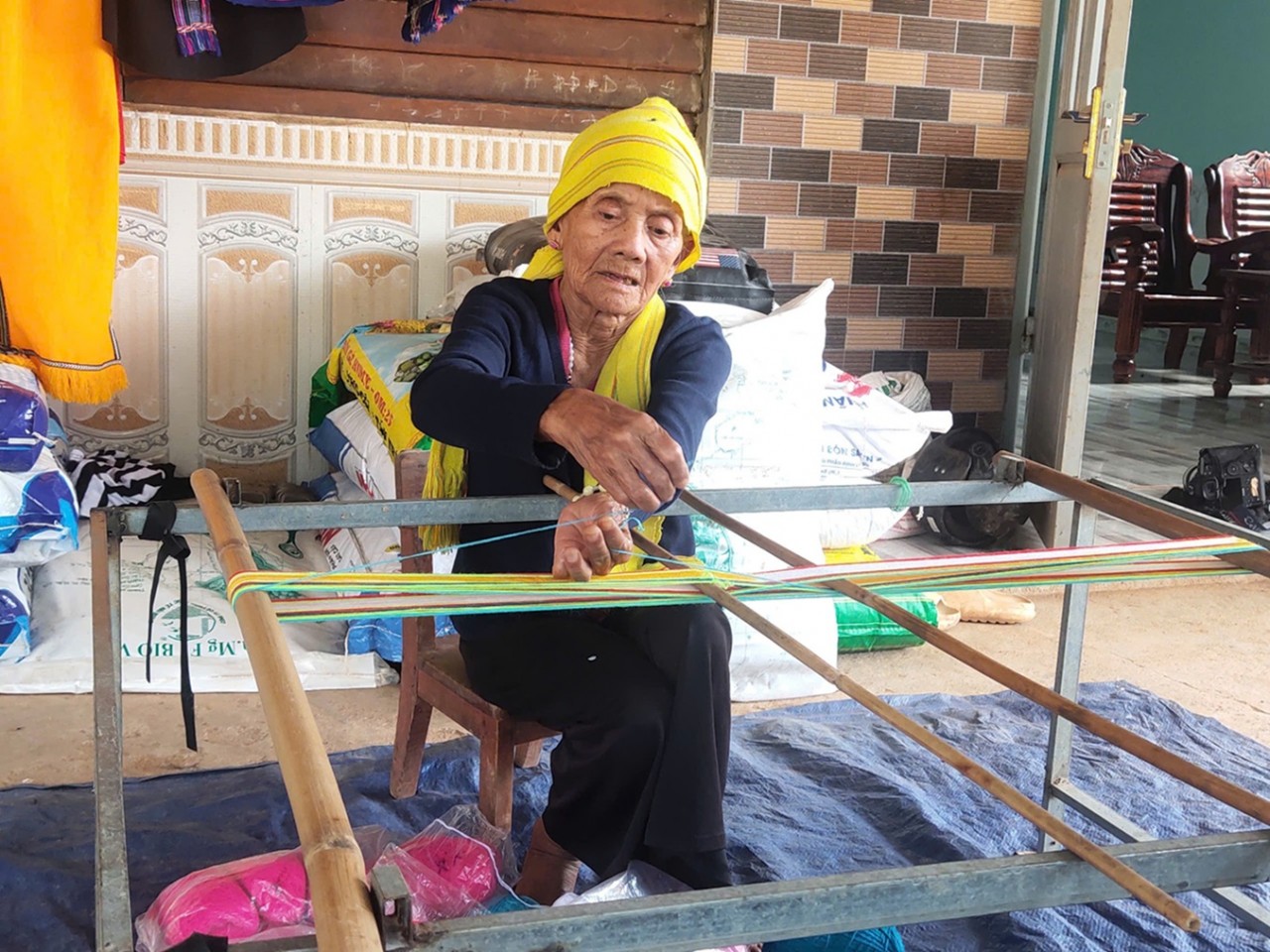 Viet's Home
Viet's Home
Hands that Reserve Da Long Brocade Craft
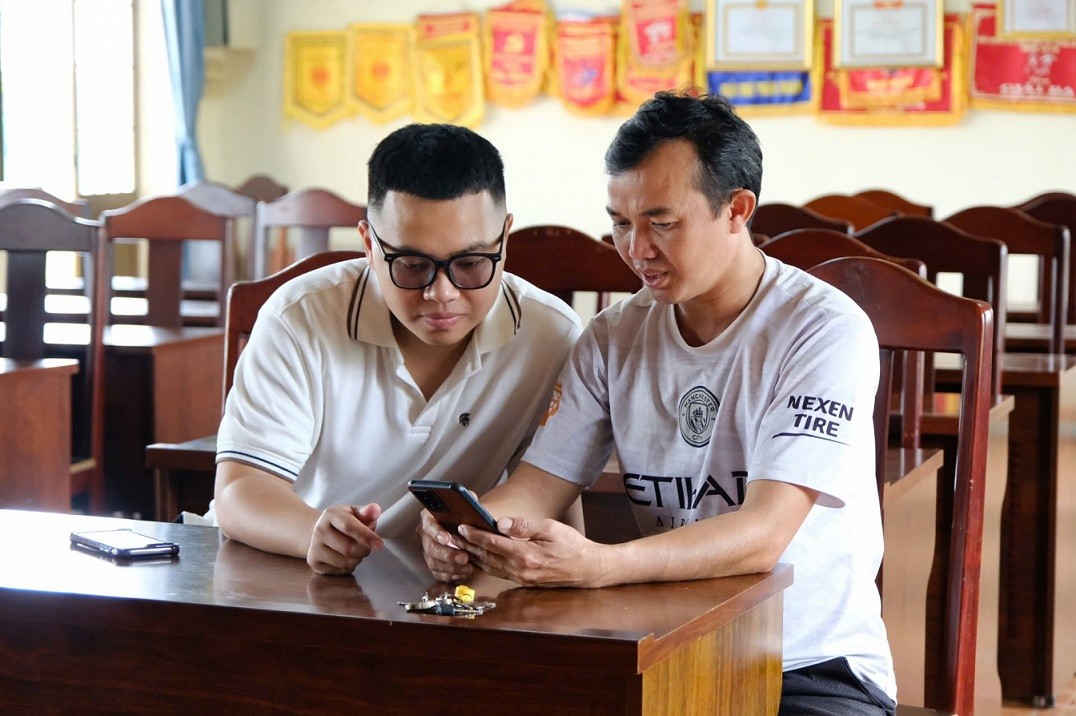 Viet's Home
Viet's Home
Da Rsal – How Digital Transformation Reshape a Poor Commune
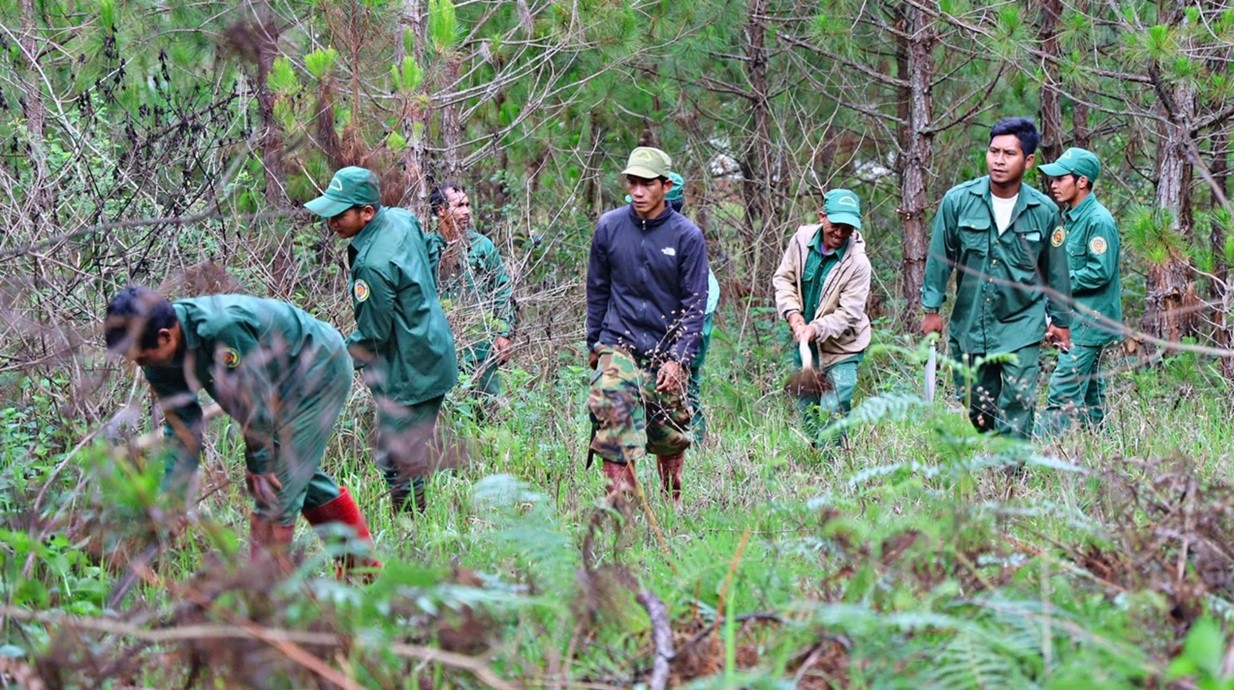 Viet's Home
Viet's Home

